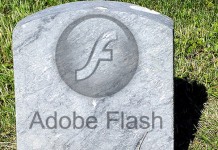While Google has been working hard to connect a variety of communities throughout the nation with super high speed Google Fiber, it is being trumped by competitors like AT&T and Comcast who are now offering 1 gigabit Internet service to users in different. And it’s fast becoming the norm.
The State of Gigabit Internet
Google came forward 6 years ago and announced its intention to bring 1 gigabit/fiber Internet to communities throughout the United States of America. However, it is truly working on its own schedule. Whether that is by design or not, it has opened the door for many other companies to get a jump on being the first to offer 1 Gig Internet speeds in markets that Google is planning to enter and others that Google has not even planned for yet.
- There are currently 4 markets with Google Fiber, and is currently laying fiber in San Antonio, Texas.
- In 2015 and 2016, there were announcements of 7 other markets where Google Fiber would expand: Nashville, Charlotte, Raleigh/Durham, Atlanta, Southern California, Salt Lake City, and Huntsville. Construction has yet to begin on those.
- Amongst the companies offering Gigabit Internet are Verizon FiOS, CenturyLink, AT&T, Cincinnati Bell, Comcast, and Frontier.
- Companies are jumping the gun on Google and introducing faster speeds, including 1 Gigabit Internet, in the markets Google has targeted and beyond.
- By being the first to offer the higher speeds, these competitors know they have the advantage, over any provider that comes later.
- AT&T has up to 1 million users of Gigabit Internet, while Google has fewer than 100,000.
- In addition, AT&T has plans to expand into 36 more cities and is currently the leader in gigabit service.
- Comcast currently offers gigabit Internet in Atlanta, and is expanding to Chicago, Detroit, Miami and Nashville this year.
- It has been noted that Google and some of the other fiber Internet providers have largely focused their development on wealthy communities. CenturyLink is attempting to bring Gigabit service to underserved areas of the country.

Bundle Deals and Other Attempts at Competing
The competition is easily trumping Google’s pricing, with deals like Comcast’s Internet/TV bundle package for $80 compared to Google fiber pricing of $70 per month. However, in March of this year, Google introduced its own bundle services with TV and phone service to try and compete.
Google is also investigating other options to help make them more competitive in a marketplace that is adapting quickly. It is testing out the option of wireless technology or using existing utilities’ fiber networks instead of starting from scratch with its own.
The reality is that the increase in competition from Google and other providers of Gigabit Internet is helping the industry overall. Municipalities are becoming more compliant with providers looking to bring the higher speed options to their communities. They are listening to what customers want and helping to pave the way for future development of Gigabit networks in their cities. All this spells good news for ISPs and consumers.













